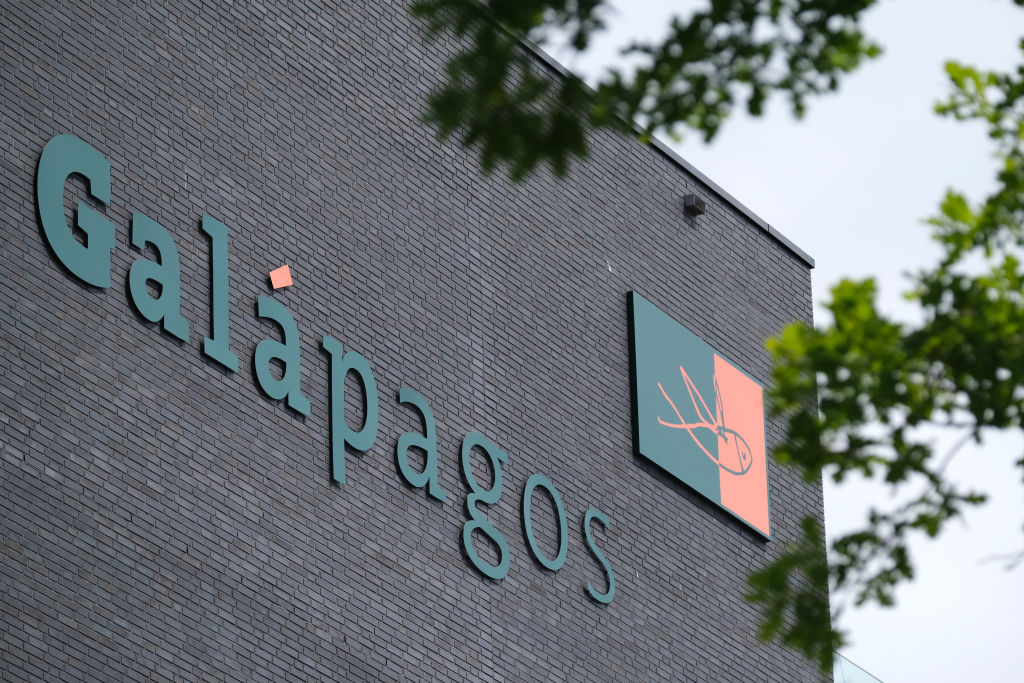When Galapagos and Gilead Sciences entered a global drug R&D collaboration six years ago, the deal focused on Galapagos’s capabilities as a developer of small molecule drugs. Fast forward to today, and the strategies and ambitions of both companies are less complementary.
Galapagos, no longer interested in developing small molecules, is focusing on cell therapy, an area where Gilead already has a strong presence. Since the 2019 deal, both companies and the biotech industry have evolved, Galapagos CEO Paul Stoffels said during a presentation Wednesday at the annual J.P. Morgan Healthcare Conference. Those changes led to Galapagos’s plans for a business separation, but in a way that does not completely sever ties with Gilead.
The planned business separation was announced last week. Legacy Galapagos will focus on developing cancer cell therapies while “SpinCo” will build a drug pipeline spanning oncology, immunology, and virology. Gilead will have an equity stake in both companies. When the deal closes, the terms of the 2019 Gilead collaboration agreement will apply only to SpinCo.
In the past two years, Galapagos has been executing a strategic pivot to focus on cell therapies, specifically, cell therapies that are made at the point of care. Currently available autologous cell therapies take a month or more to manufacture at a lab far from where a patient is receiving care. These cells are shipped frozen and must be thawed before they can be infused into a patient Galapagos aims to deliver these engineered cells with a seven-day turnaround time made possible with technology that produces the therapies at the point of care and does not require freezing.
“Not only does this bring logistical and cost benefits, but also, by providing patients with fit cells, we believe that we are improving efficacy and safety, and providing a solution for all lines of therapy, especially those patients with a very short life expectancy,” Stoffels said.
In a separate Gilead briefing with journalists on Wednesday, Gilead Chief Financial Officer Andy Dickinson said Galapagos and Gilead came to the realization that Galapagos management was spending time on the assets it wanted to move forward, which are cell therapies. The business development deals that could expand the company’s pipeline (and be developed and commercialized by Gilead) were not a focus. To achieve that goal, a new company would be needed. The SpinCo transaction is about executing two distinct strategies with the capital that is available, Dickinson said. The new spinoff will have €2.45 billion (about $2.5 billion) from Galapagos to apply toward business deals.
The business separation highlights how Galapagos cell therapy strategy diverges from Gilead’s. Yescarta an FDA-approved autologous cell therapy from Gilead, is produced at the site of its Kite subsidiary with a 14-day turnaround time, said Cindy Perettie, executive vice president of Kite. With that speed, Kite isn’t getting into point-of-care manufacturing any time soon, if at all. The turnaround time for the Kite-produced cell therapies is the fastest in the industry, and the company hasn’t needed to move into point-of-care manufacturing, Perettie said.
Galapagos initially intended for its therapies to be produced at the same hospital where a patient receives care. Stoffels said that strategy has since shifted due to the complexities of making each hospital a GMP manufacturing site. Galapagos is now taking a regional approach to supplying its cell therapies. The company is building or acquiring production sites that will be staffed by Galapagos. So far, Galapagos has five operational and approved manufacturing sites in Europe. In the U.S., a Boston site will serve hospitals in that market; the company is also planning a site for San Francisco.
Cell therapies first reached patients as treatments for advanced cases of certain blood cancers. Galapagos’s internal cell therapy pipeline currently spans three programs in clinical development for various blood cancers. In a note sent to investors, Leerink Partners analyst Faisal Khurshid said Galapagos management has emphasized that decentralized manufacturing could make cell therapy more broadly accessible, providing patients with cells that do not have to be frozen. For further differentiation, Galapagos will prioritize indications that do not yet have a CAR T-cell therapy available as a treatment, he said.
Photo: Yuriko Nakao, Getty Images











